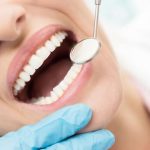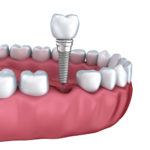Longevity of Dental Caps: How Long Do Caps on Teeth Last?
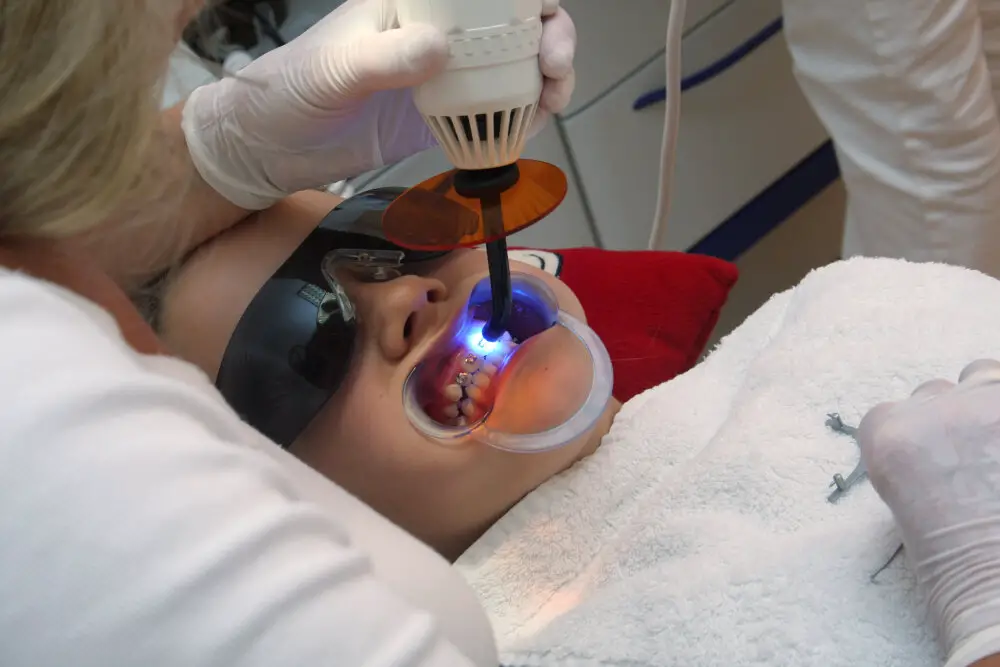
The longevity of dental caps, also known as dental crowns, is a common concern for patients undergoing restorative dental procedures. A dental cap is a tooth-shaped cover that is placed over a damaged or decayed tooth to restore its shape, size, strength, and improve its appearance. Dental caps are made of durable materials such as ceramic, porcelain, metal, or a combination of materials. However, patients often wonder how long dental caps last and what factors affect their lifespan. The lifespan of dental caps varies depending on several factors such as the type of material used, the patient’s oral hygiene habits, the extent of tooth damage, and the skill of the dentist. Generally, dental caps last between 5 to 15 years, but with proper care, they can last up to 25 years or more. Understanding the factors that affect the longevity of dental caps can help patients make informed decisions about their oral health and ensure their restorative dental procedures are successful. In this article, we will explore the lifespan of dental caps, the different types of materials used, and tips for maintaining the longevity of dental caps.
Dental caps, also known as dental crowns, are tooth-shaped caps that are placed over a damaged or decayed tooth to restore its shape, size, strength and improve its appearance. They are typically made of porcelain, ceramic, metal, or a combination of materials. Dental caps can be used to cover a tooth that has a large filling, suffered significant decay or damage, or to anchor a dental bridge. They are also used to cover teeth that have had a root canal procedure. In general, dental caps can last for many years, but their longevity depends on various factors such as oral hygiene, diet, and habits such as teeth grinding. With proper care and maintenance, dental caps can last for 10-20 years or even longer.
The longevity of dental caps is crucial for maintaining the overall oral health of a person. Dental caps are designed to cover the damaged or decayed tooth, providing an aesthetic and functional solution. A well-maintained dental cap can last for up to 15 years or more, depending on various factors such as the material used, the patient’s oral hygiene, and the dentist’s expertise. It is essential to ensure that the dental cap is well-fitted, the underlying tooth is healthy, and proper oral hygiene practices are followed to prevent bacteria accumulation. A damaged or worn-out dental cap can cause discomfort, pain, and further damage to the underlying tooth, making it necessary for a replacement. Therefore, it is essential to prioritize the longevity of dental caps to maintain good oral health and avoid unnecessary expenses.
The article titled \Longevity of Dental Caps: How Long Do Caps on Teeth Last?\ provides readers with a comprehensive overview of dental caps and their durability. The author explains that dental caps, also known as dental crowns, are a popular dental procedure used to restore the appearance and function of damaged teeth. The article delves into the different types of dental caps, including porcelain, metal, and resin, and discusses their strengths and weaknesses. Additionally, the author provides insight into the factors that can affect the longevity of dental caps, such as oral hygiene, diet, and overall health. Overall, the article serves as a valuable resource for those seeking information on dental caps and their durability.
Factors Affecting the Longevity of Dental Caps
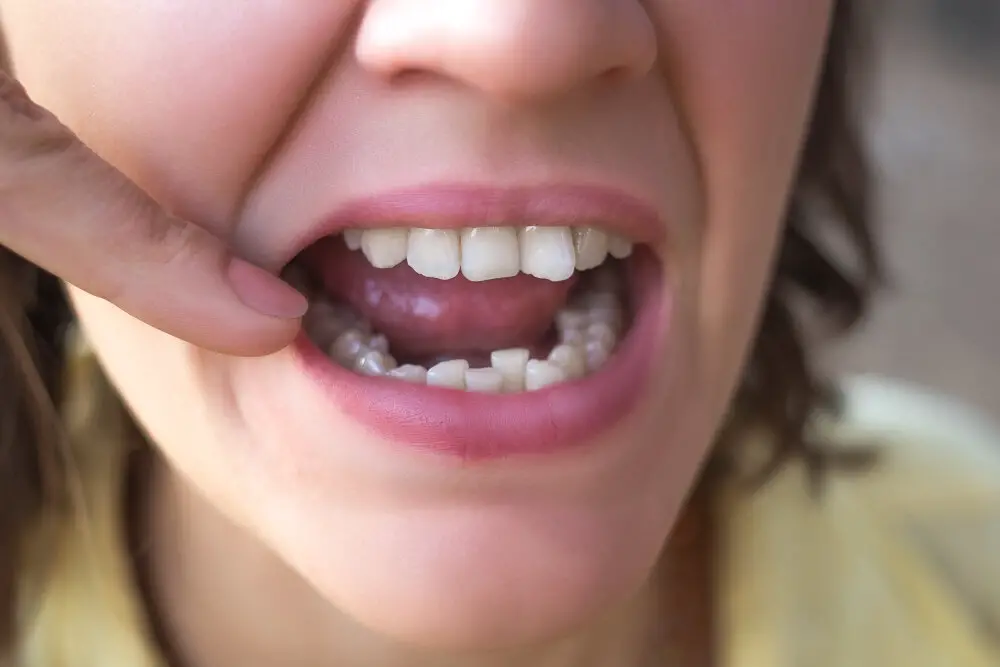
Dental caps, also known as dental crowns, are commonly used to restore damaged or decayed teeth to their natural appearance and function. However, the longevity of dental caps can vary depending on various factors. One of the most important factors is the material used to make the cap. Porcelain and zirconia caps tend to last longer than metal or composite caps. This is because porcelain and zirconia are more durable and resistant to wear and tear. Additionally, they are less likely to crack or chip over time. However, porcelain and zirconia caps are also more expensive than metal or composite caps. Another factor that can affect the longevity of dental caps is the patient’s oral hygiene habits. Good oral hygiene is essential for maintaining healthy teeth and gums, and it can also help prolong the life of dental caps. Patients who brush and floss regularly are less likely to experience tooth decay or gum disease, which can weaken the tooth structure and cause the cap to fail. Furthermore, patients who visit their dentist for regular check-ups and cleanings are more likely to catch any problems early, before they can cause damage to the cap or the underlying tooth. Therefore, it is important for patients to practice good oral hygiene habits and to maintain regular dental appointments in order to ensure the longevity of their dental caps.
The material used for the dental cap significantly impacts its longevity. There are different types of materials available for dental caps, including porcelain, metal, resin, and ceramic. Porcelain is a popular choice due to its durability, natural appearance, and stain resistance. Metal crowns are sturdy and long-lasting, but they may not be suitable for visible teeth due to their metallic appearance. Resin crowns are affordable and easy to install, but they are not as durable as porcelain or metal caps. Ceramic crowns are also a popular choice as they closely resemble natural teeth and are resistant to wear and tear. The choice of material for the dental cap should be based on the patient’s dental health, aesthetic preferences, and budget.
The quality of the dental work is a crucial factor in determining the longevity of dental caps. A well-executed dental cap procedure involves thorough examination, precise measurements, and accurate fitting to ensure that the cap fits perfectly. The materials used for the dental cap also play a significant role in determining its durability and longevity. High-quality materials like porcelain, ceramic, or zirconia are known for their strength, durability, and natural-looking appearance. However, even the best-quality dental caps can fail if not correctly maintained or if the underlying tooth structure deteriorates due to decay or injury. Therefore, it is essential to choose a skilled and experienced dentist who uses the best quality materials and provides proper aftercare instructions to ensure the longevity of dental caps.
Oral hygiene practices are essential for maintaining the longevity of dental caps. Regular brushing, flossing, and mouthwash usage are crucial in preventing plaque buildup and gum disease. Furthermore, avoiding foods and drinks that stain or erode teeth, such as coffee, tea, and acidic beverages, can also help preserve the appearance and durability of dental caps. Visiting a dentist regularly for professional cleaning and check-ups can catch any potential issues early on and ensure that the caps remain intact and functional for a long time. In summary, good oral hygiene habits, combined with regular dental care, are key to extending the lifespan of dental caps and maintaining optimal oral health.
Chewing habits play a crucial role in the longevity of dental caps. Patients who have a habit of grinding their teeth or frequently chewing on hard foods, such as ice or candy, are at a higher risk of damaging their dental caps. Additionally, poor oral hygiene habits, such as neglecting to brush and floss regularly, can contribute to the deterioration of dental caps. On the other hand, patients who maintain good oral hygiene and avoid harmful chewing habits may be able to prolong the lifespan of their dental caps. Regular dental check-ups and cleanings can also help to ensure the durability and longevity of dental caps.
Regular dental checkups are essential for maintaining the longevity of dental caps. These checkups allow dentists to assess the condition of the caps and detect any potential issues early on. Dental caps are designed to last for many years, but they can become worn or damaged over time due to factors such as grinding or clenching of the teeth, decay, or trauma. Regular checkups give dentists the opportunity to address any problems before they become more severe, which can help to extend the lifespan of the caps. Additionally, good oral hygiene practices, such as brushing and flossing regularly, can also help to prolong the life of dental caps.
Average Lifespan of Dental Caps
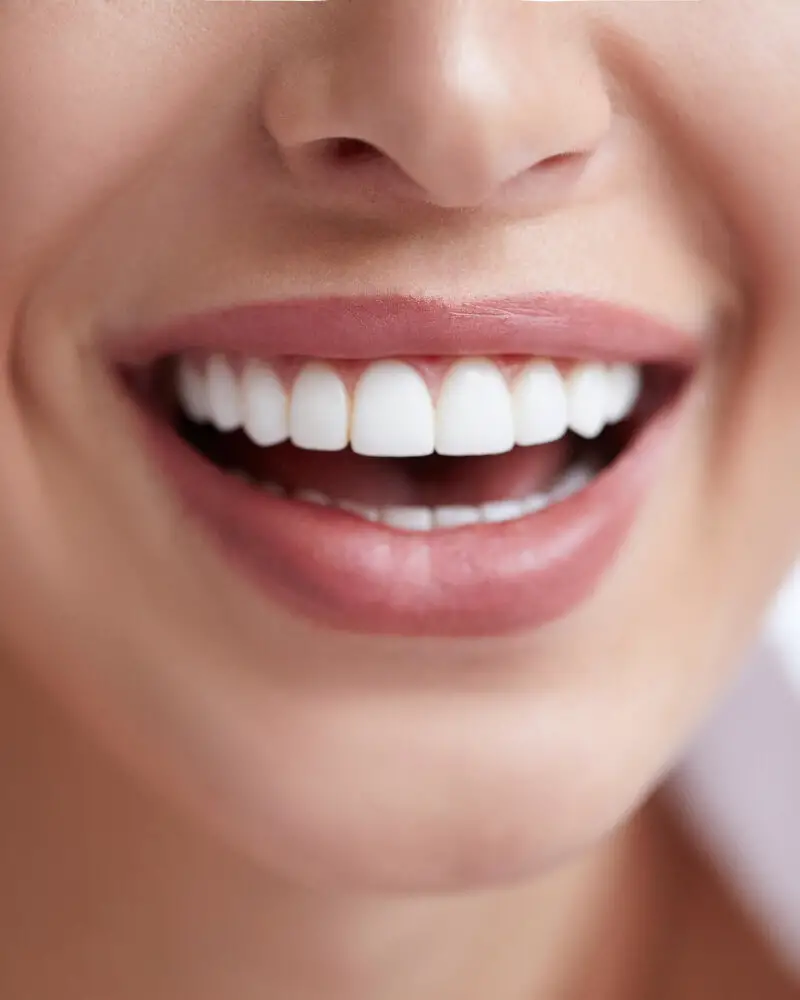
Dental caps, also known as dental crowns, are a popular restorative dental option for restoring the shape, size, and function of damaged teeth. They are typically made of materials such as porcelain, metal, or ceramic, and are designed to last for many years. The average lifespan of dental caps can vary depending on several factors, including the quality of the materials used, the patient’s oral hygiene practices, and the amount of wear and tear the crown is subjected to over time. With proper care and maintenance, dental caps can last anywhere from 10 to 30 years or more. Regular dental check-ups and cleanings are essential for ensuring the longevity of dental caps, as they allow your dentist to monitor the condition of the crown and make any necessary adjustments or repairs. Patients who practice good oral hygiene habits, such as brushing and flossing regularly, can also help extend the lifespan of their dental caps by preventing decay and gum disease that can compromise the integrity of the crown. Ultimately, the lifespan of dental caps depends on a range of factors, but with proper care and maintenance, they can provide patients with a durable and long-lasting solution for restoring their damaged teeth.
Dental caps, also known as dental crowns, are used to restore damaged or decayed teeth to their natural shape and size. There are several types of dental caps available, including porcelain, metal, ceramic, and composite resin. Porcelain crowns are the most popular choice due to their durability and natural-looking appearance. Metal crowns are also a popular choice because of their strength and resistance to wear and tear. Ceramic and composite resin crowns are less durable but are often used for front teeth due to their natural-looking appearance. The lifespan of a dental cap can vary depending on the material used, the quality of the crown, and the level of care taken by the patient. On average, dental caps can last between 10-15 years, but with proper care, they can last up to 20-30 years. It is important to maintain good oral hygiene and visit your dentist regularly to ensure the longevity of your dental caps.
The lifespan of dental caps is affected by various factors that include the type of cap, the material used, the quality of workmanship, and the patient’s oral hygiene. Porcelain caps are known to have a longer lifespan than other types of caps due to their durability and resistance to wear and tear. However, porcelain caps are also more prone to chipping and cracking, which can reduce their lifespan. Caps made of composite resin have a shorter lifespan than porcelain caps, as they are more prone to wear and staining. The lifespan of a cap can also be affected by the patient’s oral hygiene practices, as poor oral hygiene can lead to decay and gum disease, which can cause the cap to fail prematurely. Additionally, regular dental check-ups and cleanings can help to identify and address any issues with the cap before they become more serious.
Dental caps, also known as dental crowns, are used to restore damaged or decayed teeth. There are several types of dental caps available, including metal, porcelain, ceramic, and resin. Metal caps are the most durable but are also the least aesthetically pleasing. Porcelain and ceramic caps are more natural-looking and are a better option for front teeth. Resin caps are the least expensive but also the least durable and are typically used for temporary restorations. The longevity of a dental cap depends on several factors, including the material used, the quality of the restoration, and the patient’s oral hygiene habits. It is essential to discuss the different types of dental caps with your dentist to determine which option is best for your specific needs.
Signs of Wear and Tear on Dental Caps
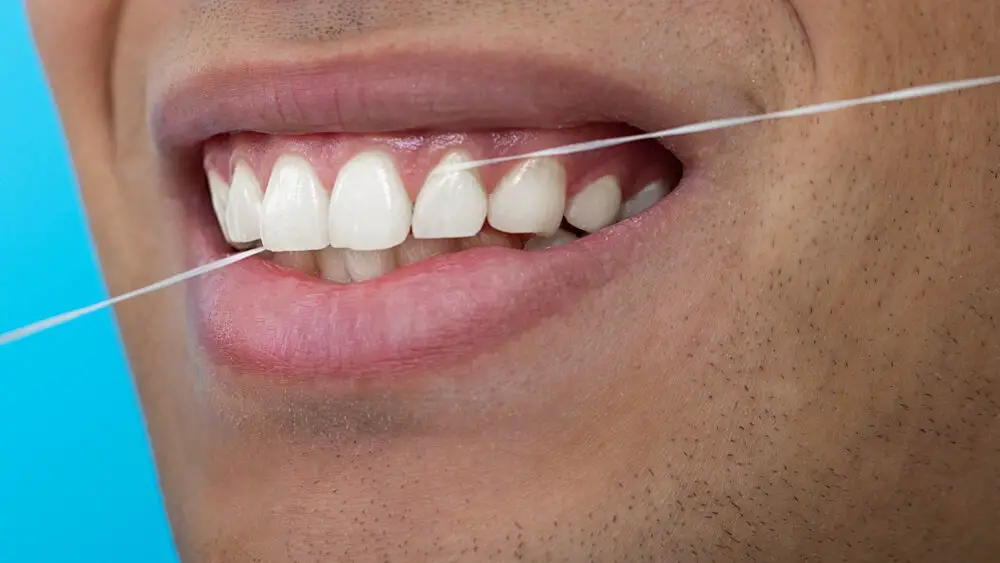
Dental caps, also known as dental crowns, are protective caps that are placed over damaged or weakened teeth to help restore their shape, size, and strength. While dental caps can last for many years, they are not indestructible and can eventually show signs of wear and tear. Some common signs of wear and tear on dental caps include chips, cracks, and discoloration. These signs can indicate that the dental cap is no longer functioning as effectively as it once did and may need to be replaced. Chips and cracks in dental caps can occur due to a variety of reasons, including trauma, teeth grinding, or biting down on hard objects. These cracks and chips can weaken the structure of the dental cap, making it more susceptible to further damage. Discoloration can also occur due to factors such as smoking, drinking coffee or tea, or poor oral hygiene. While discoloration may not necessarily indicate that the dental cap is no longer functioning properly, it can be unsightly and may cause a person to feel self-conscious about their smile. Regular dental check-ups can help identify signs of wear and tear on dental caps early on, allowing for prompt treatment and replacement if necessary.
Dental caps, also known as dental crowns, are designed to protect and enhance the appearance of damaged teeth. However, over time, these caps can become damaged and require replacement. Some common signs of dental cap damage include cracks or chips on the surface of the cap, discoloration or staining around the edges of the cap, and an uneven or uncomfortable fit. Additionally, if you experience pain or sensitivity in the tooth or surrounding gum tissue, this could indicate damage to the cap or underlying tooth structure. It’s important to schedule regular dental check-ups and address any concerns with your dentist promptly to ensure the longevity of your dental caps and overall oral health.
Dental caps, also known as dental crowns, are designed to last for many years, but they are not indestructible. The lifespan of a dental cap depends on several factors such as the quality of the materials used, the patient’s oral hygiene habits, and the amount of wear and tear it receives. A dental cap may need to be replaced if it becomes loose, cracked, or damaged, or if it no longer fits properly. Additionally, if the tooth underneath the cap develops decay or gum disease, it may be necessary to remove the cap and treat the underlying problem before placing a new one. Regular dental check-ups can help detect any issues with dental caps early on, allowing for prompt treatment and potentially prolonging their lifespan.
Regular dental checkups are essential for maintaining good oral health and monitoring the condition of dental caps. Dental caps, also known as crowns, are used to protect damaged, cracked, or broken teeth. However, over time, caps may become loose or worn down, which can cause discomfort, pain, and even infection. A dentist can detect and address any issues with dental caps during routine checkups, allowing for early intervention and preventing further damage. Additionally, regular cleanings and exams can help prevent the buildup of plaque and decay, which can weaken the structure of the cap. By prioritizing regular dental checkups, individuals can ensure the longevity and effectiveness of their dental caps.
Proper Maintenance of Dental Caps
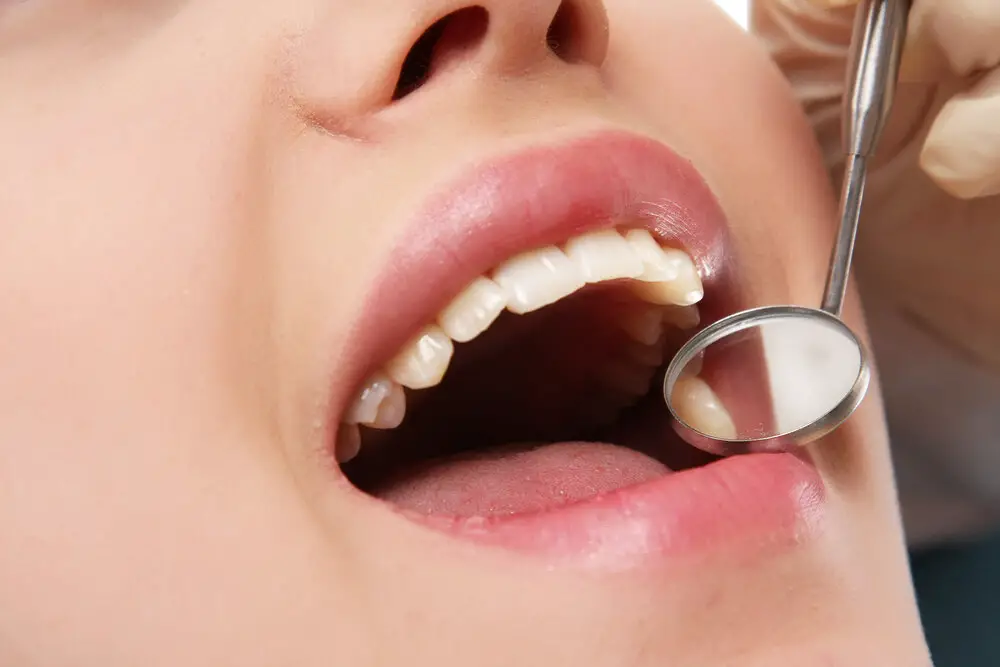
Dental caps, also known as dental crowns, are tooth-shaped covers that are placed over damaged teeth to protect and restore their shape, size, strength, and appearance. They are made of a variety of materials, including porcelain, ceramic, metal, and resin, and can last for many years with proper care and maintenance. To ensure the longevity of dental caps, it is important to practice good oral hygiene, avoid hard and sticky foods, and visit the dentist regularly for checkups and cleanings. One of the most important aspects of proper maintenance of dental caps is brushing and flossing regularly. Brushing twice a day and flossing once a day can help remove plaque and food particles that can accumulate around the cap and cause decay or gum disease. It is also important to use a soft-bristled toothbrush and non-abrasive toothpaste to avoid damaging the cap or the surrounding teeth. Additionally, avoiding hard and sticky foods, such as ice, hard candy, and chewy candy, can help prevent chips, cracks, or dislodgement of the cap. Finally, regular visits to the dentist can help detect any issues early on and prevent further damage to the cap or the tooth.
Maintaining good oral hygiene practices is crucial to ensure longevity of dental caps. Brushing twice a day for at least two minutes, flossing regularly, and using mouthwash can help prevent plaque buildup and decay around the cap. It is also important to avoid foods that are hard or sticky, as they can damage the cap or dislodge it from the tooth. Regular visits to the dentist for cleanings and check-ups can also help detect any issues early on and prevent further damage. By following these simple steps, patients can enhance the lifespan of their dental caps and maintain a healthy, beautiful smile for years to come.
Maintaining good oral hygiene and avoiding certain foods and habits is crucial to extend the longevity of dental caps. Hard and sticky foods such as ice, hard candy, and chewing gum should be avoided as they can cause damage to the caps. Similarly, habits such as biting nails, using teeth as tools, and grinding teeth can also weaken and damage the dental caps. It is also important to limit the consumption of sugary and acidic foods and drinks as they can lead to decay and erosion of the underlying teeth, which can ultimately compromise the integrity of the dental caps. By adopting a healthy diet and avoiding harmful habits, individuals can ensure the long-term success of their dental caps.
Following the dentist’s instructions for caring for dental caps is crucial for ensuring their longevity. Dental caps are a great solution for restoring damaged or broken teeth, but they require proper maintenance to last a long time. Neglecting to follow the dentist’s instructions can lead to the caps becoming loose, falling off, or even causing gum irritation. This can ultimately result in the need for costly repairs or replacements. Therefore, it is important to regularly brush and floss around the caps, avoid chewing hard foods, and attend regular dental check-ups to maintain their durability and prolong their lifespan. By following these simple instructions, patients can enjoy the benefits of dental caps for many years to come.
Ensuring the longevity of dental caps is crucial in maintaining the overall health and functionality of teeth. Dental caps, also known as crowns, are used to cover damaged or weakened teeth, restoring their shape and size and improving their appearance. With proper care and maintenance, dental caps can last anywhere from 10 to 15 years or even longer. However, factors such as poor oral hygiene, teeth grinding, and biting on hard objects can significantly decrease the lifespan of dental caps. Therefore, it is important to maintain good oral hygiene practices, wear a protective mouthguard during physical activities, and avoid habits that can damage the teeth to ensure the longevity of dental caps.
The lifespan of dental caps, also known as dental crowns, is influenced by various factors. The type of material used to create the cap plays a significant role in its longevity. Ceramic or porcelain caps are aesthetically pleasing but can chip or crack easily, while metal or gold caps are more durable but less attractive. The location of the cap on the tooth also affects its lifespan. Caps on back teeth experience more pressure and wear and tear, making them more prone to damage. Poor oral hygiene, such as inadequate brushing and flossing, can lead to decay and gum disease, which can weaken the tooth and cause the cap to fail. Additionally, habits such as teeth grinding or biting on hard objects can damage the cap and reduce its lifespan. Regular dental check-ups and proper maintenance can help extend the lifespan of dental caps.
Proper maintenance and regular dental checkups are crucial for ensuring the longevity of dental caps. Dental caps are designed to protect the underlying tooth structure and can last for many years with proper care. However, neglecting proper oral hygiene and skipping regular dental checkups can lead to the development of cavities or gum disease, which can compromise the integrity of the dental cap. Additionally, consuming hard or sticky foods can put excessive pressure on the dental cap, leading to cracks or fractures. Therefore, it is important to maintain good oral hygiene practices, such as brushing and flossing regularly, avoiding hard or sticky foods, and visiting the dentist every six months for routine checkups and cleanings to ensure the longevity of dental caps.
Conclusion
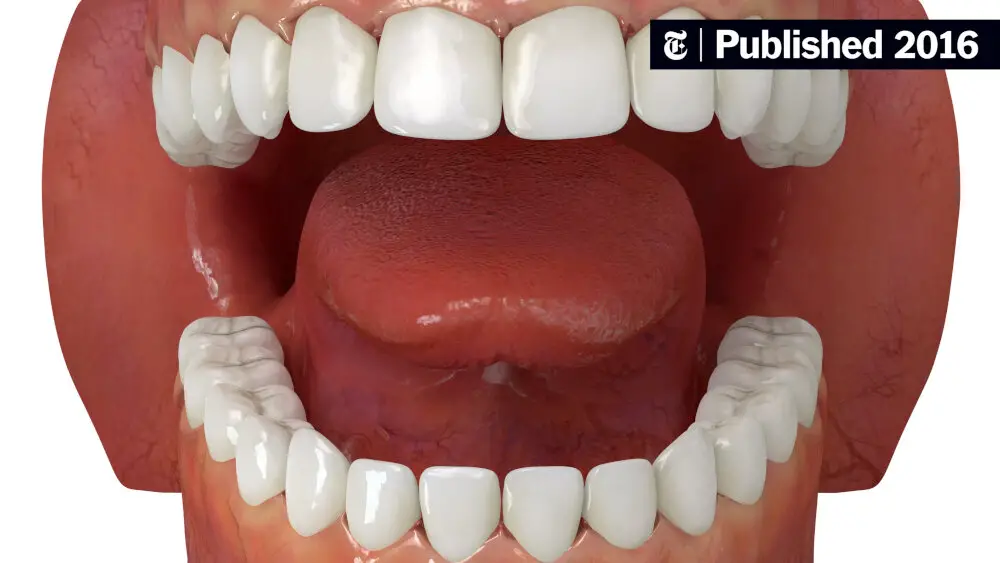
In conclusion, the longevity of dental caps depends on various factors such as the quality of the material used, the patient’s oral hygiene habits, and the amount of wear and tear on the cap. Generally, dental caps can last for several years, ranging from 10 to 15 years or even longer with proper care. However, it’s important to note that regular dental check-ups and maintenance are crucial to ensure the longevity of the caps. Additionally, avoiding bad habits such as chewing on hard objects or using teeth as tools can significantly extend the lifespan of dental caps. In the end, the key to a long-lasting dental cap is a combination of quality materials, good oral hygiene, and responsible habits.
